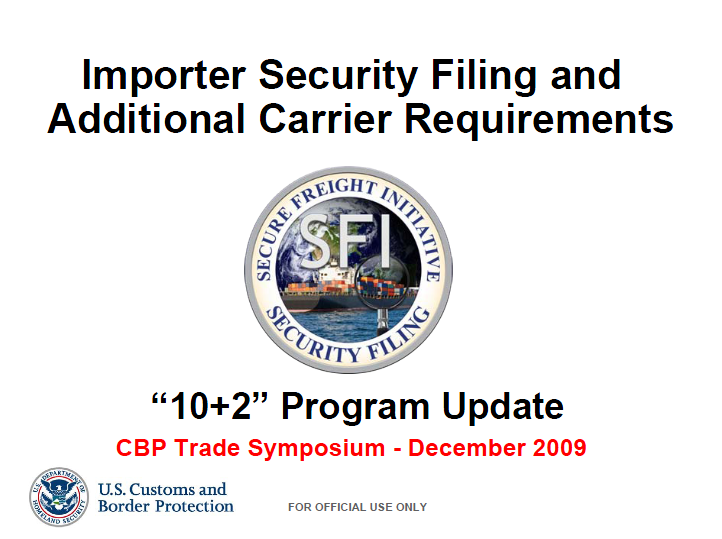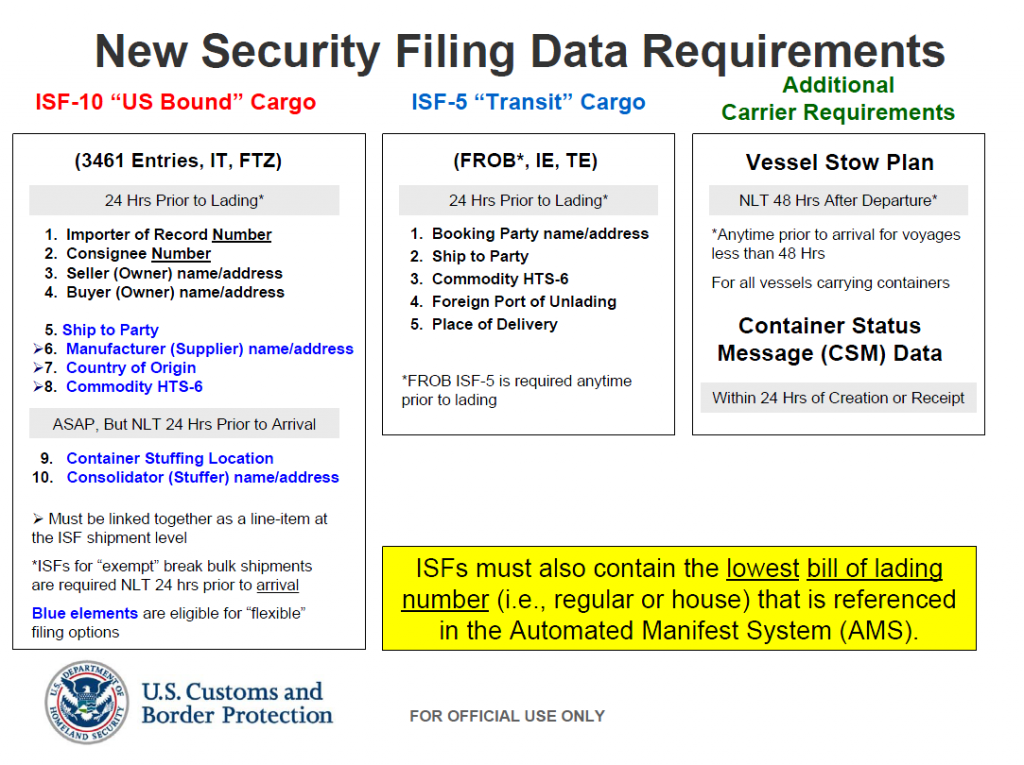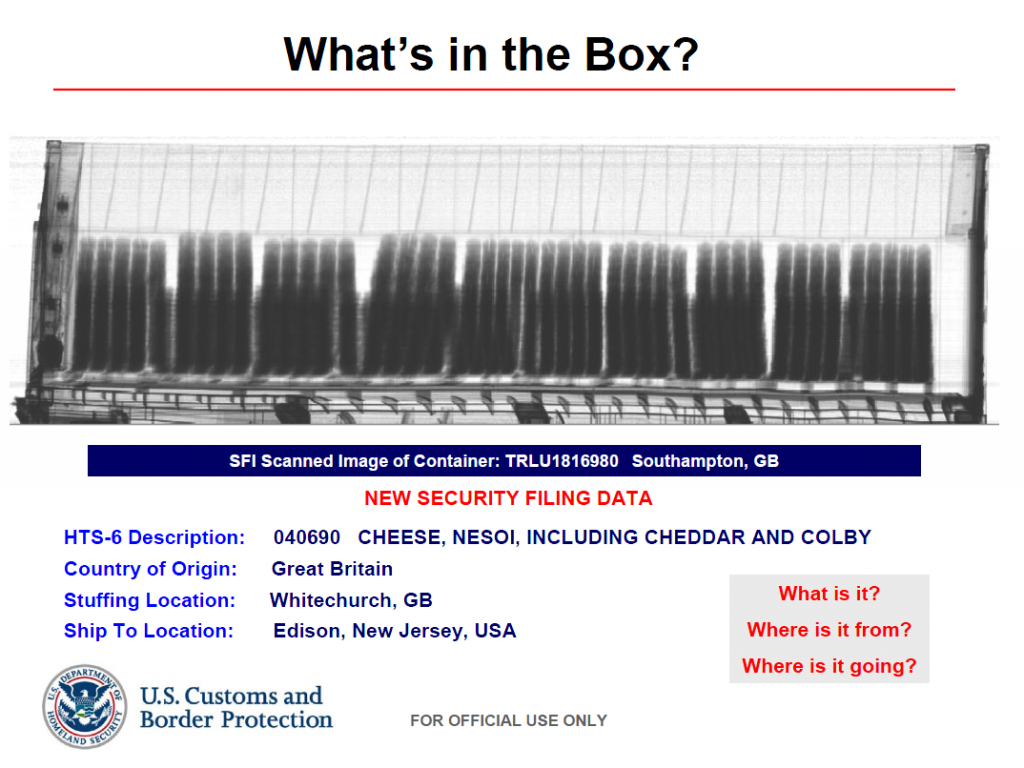 “10+2” Program Update
“10+2” Program Update
- CBP Trade Symposium
- 25 pages
- For Official Use Only
- December 2009
The Security Filing, commonly known as the “10+2” initiative, is a Customs and Border Protection (CBP) regulation that requires importers and vessel operating carriers to provide additional advance trade data to CBP pursuant to Section 203 of the SAFE Port Act of 2006 and section 343(a) of the Trade Act of 2002, as amended by the Maritime Transportation Security Act of 2002, for non-bulk cargo shipments arriving into the United States by vessel.
Importer Requirements:
U.S. Bound Cargo (Includes FTZ and IT) : requires the electronic filing of an Importer Security Filing (ISF) comprised of 10 data elements.
Transit Cargo (FROB, IE and TE): requires the electronic filing of an Importer Security Filing (ISF) comprised of 5 data elements.Carrier Requirements:
Vessel Stow Plans required for arriving vessels with containers.
Container Status Messages required for containers arriving via vessel.…
…
• CBP has received well over:
• 3.4 Million ISF-10s from over
• 1,900 ISF Filers representing more than
• 99,700 ISF Importers (IOR#’s)
• 95% acceptance rateCBP has also received more than:
• 6,000 vessel stow plans and
• 101 Million container status messages…
Mitigation Guidelines
- First-violation: Liquidated damages claim may be cancelled upon payment of an amount between $1,000 and $2,000, depending on the presence of mitigating or aggravating factors, if CBP determines that law enforcement goals were not compromised by the violation.
- Subsequent Violations: If an ISF Importer incurs a subsequent liquidated damages claim for filing a late or inaccurate ISF or an inaccurate ISF update, the liquidated damages claim may be cancelled upon payment of an amount not less than $2,500 if CBP determines that law enforcement goals were not compromised by the violation.
No relief will be granted if CBP determines that law enforcement goals were compromised by the violation.


